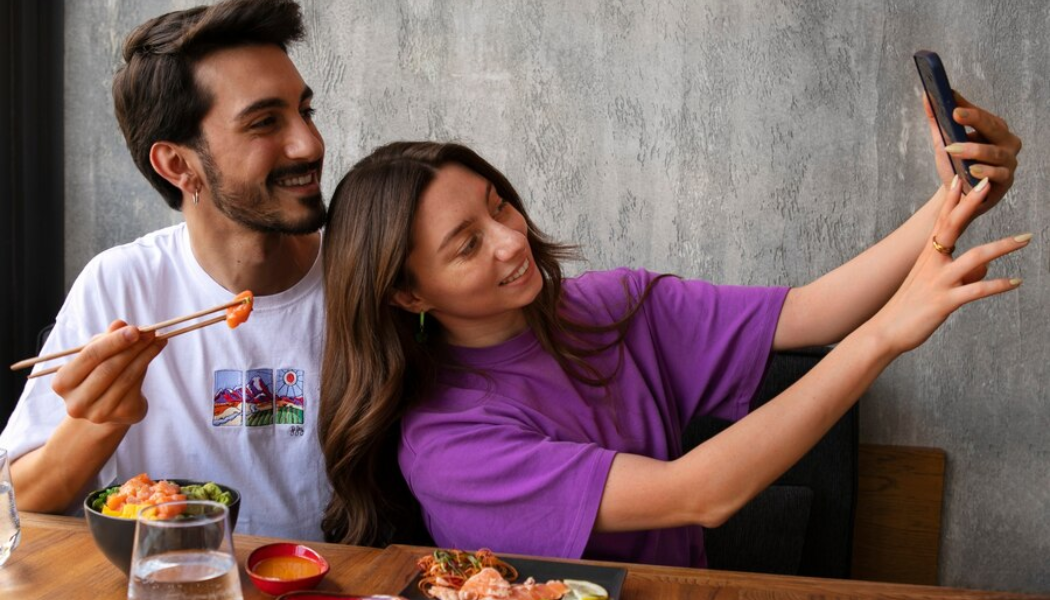Dating norms evolve with each generation, influenced by societal changes, technological advancements, and shifting cultural values. Millennials (born 1981–1996) and Gen Z (born 1997–2012) represent two distinct groups whose approaches to relationships reflect their unique experiences and challenges. While both generations embrace modern dating norms, their differing communication styles, attitude towards commitment, and expectations make their approaches to romance uniquely their own.
This blog dives deep into the five core differences between Millennials and Gen Z in dating, offering insights into how these generational divides shape their relationships.
1. Communication Styles
The way people communicate in relationships can make or break their connections, and Millennials and Gen Z often differ significantly in this area.
Millennials:
Millennials grew up witnessing the transition from analog to digital communication. While they are tech-savvy, many still value in-person conversations and long-form communication like phone calls or detailed text messages. Their approach tends to be more intentional and reflective of the time when face-to-face interactions were central.
- Strengths: Millennials prefer clarity and depth in communication, often valuing meaningful discussions about feelings and goals.
- Challenges: Their reliance on more traditional methods can sometimes clash with the fast-paced, digital-first communication Gen Z favors.
Gen Z:
Gen Z, on the other hand, are digital natives who have grown up in a world dominated by instant messaging, emojis, and memes. Their communication style often leans toward brevity and visual content, such as Snapchat stories, Instagram DMs, or TikTok trends.
- Strengths: Gen Z excels at using creativity and humor to connect, often relying on multimedia to convey emotions.
- Challenges: The preference for short, casual communication can sometimes feel superficial to Millennials, who may interpret it as a lack of depth.
2. Attitude Towards Commitment
Commitment is a cornerstone of any relationship, but the way Millennials and Gen Z approach it varies significantly.
Millennials:
Millennials generally view commitment as a milestone worth striving for, albeit cautiously. Many have delayed traditional markers of adulthood, such as marriage and homeownership, due to economic pressures. This has led to a more thoughtful and deliberate approach to relationships, where they prioritize stability and compatibility.
- Mindset: They often prefer to build a strong foundation before committing, focusing on career, financial stability, and personal growth.
- Challenges: This cautious approach can sometimes be perceived as hesitancy or fear of settling down.
Gen Z:
Gen Z, influenced by a more fluid view of relationships, often sees commitment as one of many options rather than a definitive goal. They prioritize personal freedom and individuality, which can make them less inclined to settle down early.
- Mindset: Gen Z values experiences over permanence, leading to a more exploratory approach to dating.
- Challenges: This mindset can create friction with Millennials, who may interpret it as a lack of seriousness or direction.
3. Technology’s Role in Dating
The impact of technology on relationships cannot be overstated, and Millennials and Gen Z use it in distinctly different ways.
Millennials:
For Millennials, dating apps like Tinder and Bumble revolutionized how they approached relationships, introducing convenience and accessibility. However, many still value meeting potential partners through social circles or shared interests.
- Tech Use: Millennials often balance online and offline dating, using technology as a supplement rather than the primary means of connection.
- Challenges: Their more balanced approach can clash with Gen Z’s digital-first tendencies, leading to misaligned expectations.
Gen Z:
Gen Z has fully embraced technology, leveraging everything from apps to social media for dating. They often prioritize virtual interactions before committing to in-person meetings.
- Tech Use: Platforms like Bumble and Instagram double as dating tools, with Gen Z using creative content to showcase their personalities.
- Challenges: The reliance on digital communication can sometimes hinder their ability to form deep, in-person connections.
4. Values and Expectations in Relationships
The core values and expectations that Millennials and Gen Z bring to relationships often differ, reflecting their unique worldviews.
Millennials:
Millennials tend to value stability, mutual respect, and shared goals in relationships. Having grown up in a time of relative economic stability before the 2008 recession, they often focus on long-term planning and emotional depth.
- Expectations: Millennials often seek partners who align with their life goals, such as building a family or advancing their careers.
- Challenges: Their pragmatic approach can sometimes feel overly serious to Gen Z, who often value spontaneity and fluidity.
Gen Z:
Gen Z places a strong emphasis on authenticity, individuality, and inclusivity. They are less bound by traditional norms, embracing diverse identities and relationship dynamics.
- Expectations: Gen Z looks for connections that honor their personal growth and autonomy, often valuing partners who support their evolving identities.
- Challenges: Their high expectations for emotional intelligence and adaptability can sometimes overwhelm Millennials, who may find these demands difficult to navigate.
5. Casual Dating vs. Serious Relationships
The balance between casual dating and serious relationships is another area where Millennials and Gen Z diverge.
Millennials:
Millennials often transition from casual dating to serious relationships as they enter their late 20s and 30s. While they value exploration, many eventually seek stability and commitment.
- Preference: Serious relationships often align with their broader life goals, such as starting a family or achieving financial milestones.
- Challenges: Their tendency to prioritize commitment can sometimes feel stifling to Gen Z, who may prefer to keep things casual.
Gen Z:
Gen Z is more likely to embrace casual dating as a valid lifestyle choice, often without the intention of transitioning into long-term commitments.
- Preference: They value the freedom to explore connections without the pressure of defining them.
- Challenges: This approach can create tension with Millennials, who may struggle to navigate the ambiguity of casual relationships.
Conclusion: Bridging the Gap
While Millennials and Gen Z differ in their approaches to dating, understanding these differences can foster stronger connections and mutual respect. By embracing each other’s perspectives, both generations can learn valuable lessons about communication, commitment, and personal growth.
For Millennials, adapting to Gen Z’s creativity and spontaneity can bring a refreshing dynamic to their relationships. Conversely, Gen Z can benefit from Millennials’ depth and focus on long-term compatibility. The key lies in balancing individuality with shared values, creating relationships that honor both generations’ unique strengths.
Ultimately, dating across generations requires open-mindedness, patience, and a willingness to evolve. Whether you’re a Millennial, a Gen Z, or someone caught in between, understanding these generational differences can lead to more meaningful and fulfilling relationships.
At The Karan
There may be a generation gap, but true love transcends trends and feels timeless. At The Karan, we understand the complexities of love and relationship challenges. We specialize in helping you rekindle your bond by removing negative blockages and addressing the root causes, paving the way for a deeper and more meaningful connection with your partner.
Book Your Session Now & Heal Your Relationship












